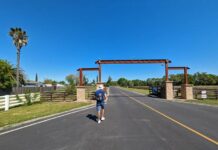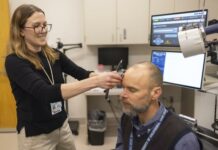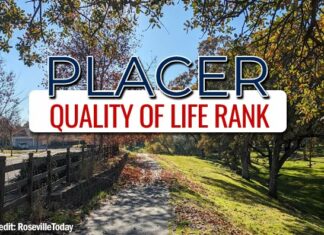Continuing research on Vaccine
SACRAMENTO, Calif. – Despite the encouraging news of potentially successful COVID-19 vaccine trials, there is not yet an FDA-approved vaccine available. Research into other effective coronavirus vaccines continues, including at UC Davis Health.
The health system is expected to launch a stage 3 clinical trial with the National Institutes of Health (NIH) and Novavax soon to test a new experimental coronavirus vaccine. The trial is led by Stuart Cohen, chief of the Division of Infectious Diseases and director of Hospital Epidemiology and Infection Prevention at UC Davis Health.
“It doesn’t matter who develops the vaccine first, because we need multiple options for patients. Together, they can make a huge impact in controlling the pandemic.”
Stuart Cohen, UC Davis Health
Race to COVID-19 vaccine takes many routes
In the race to develop an effective vaccine for the coronavirus, multiple companies are taking different approaches. While AstraZeneca and Johnson & Johnson are using mono-virus vectors in their vaccines, Moderna and Pfizer have adopted a messenger RNA model.
Novavax is a subunit vaccine, following a more traditional vaccine model. The vaccine, called NVX-CoV2373, has a subunit from the spike protein in SARS-CoV-2, the virus causing COVID-19. The subunit is combined with an adjuvant, a boosting agent to improve the body’s immune response to the vaccine. When this combination enters the body, it triggers an immune response to the spike protein and creates antibodies to fight it. The spike protein is the main target in the SARS-CoV-2 for development of immunity.
“The vaccine contains protein antigens that cannot replicate or cause COVID-19. The antibodies generated to the vaccine will help protect the body from the real, fully-potent virus,” Cohen said.
The Novavax vaccine has a critical advantage. It can be stored in a liquid state at a temperature between 36°F and 46°F (2°C to 8°C). This allows for distribution using “standard vaccine channels,” unlike the Pfizer and Moderna vaccines that must be stored at subzero temperatures .
On Nov. 9, the US Food and Drug Administration (FDA) approved fast-track authorization for the Novavax COVID-19 vaccine. This permits Novavax to submit parts of its new drug application (NDA) on a rolling basis and enables faster drug approvals. Novavax is preparing to deliver 100 million doses to the U.S. by January 2021.
“It doesn’t matter who develops the vaccine first, because we need multiple options for patients. Together, they can make a huge impact in controlling the pandemic,” Cohen said.
How does vaccine testing work?
The Novavax clinical trial takes a natural infection approach. It means that the participants will not be intentionally exposed to the virus. Scientists will monitor the number of participants who get infected with the coronavirus among the vaccinated group and the placebo group. One indicator that the vaccine is working is having substantially fewer infected participants in the vaccinated group than those who had the placebo.
“Proving the efficacy of a vaccine is always challenging. Scientists need to establish that the vaccine helped to substantially reduce the number of infected people among those vaccinated, compared to those who took the placebo,” Cohen said.
According to Cohen, the challenge in coronavirus vaccine testing is determining whether the lower infection rate is due to the vaccine’s effectiveness or other factors. People abiding by desirable practices such as wearing a mask, staying at home and washing hands will have significantly less chance of getting exposed and contracting COVID-19.
Participating in vaccine trials
The vaccine candidates must pass three phases of human testing to ensure safety and efficacy in preventing the disease. In its third stage, the Novavax trial is seeking to enroll up to 30,000 people in the U.S. and Mexico. UC Davis Health is slotted to enroll 200-300 participants.
Novavax will prioritize groups that are most affected by Covid-19, including those from underrepresented minorities.
“UC Davis Health is praised for successfully recruiting participants from diverse backgrounds in previous clinical trials. The richness in participants’ profiles is a result of genuine outreach efforts to the Latino, African American and the Native Americans communities,” Cohen said
Blind, randomized trial
It is a blind, randomized trial, so neither the participants nor the researchers will know who gets the vaccine and who receives the placebo. The vaccine will be given in two doses, 21 days apart.
For information about the clinical trial, please contact [email protected]
The trial is funded by a $1.7 million grant from the NIH’s National Institute of Allergy and Infectious Diseases (NIAID) and sponsored by Fred Hutchinson Cancer Center.
(21+ years strong)
Welcome to the brighter side!
Get in front of local customers! 24/7 (365)





















